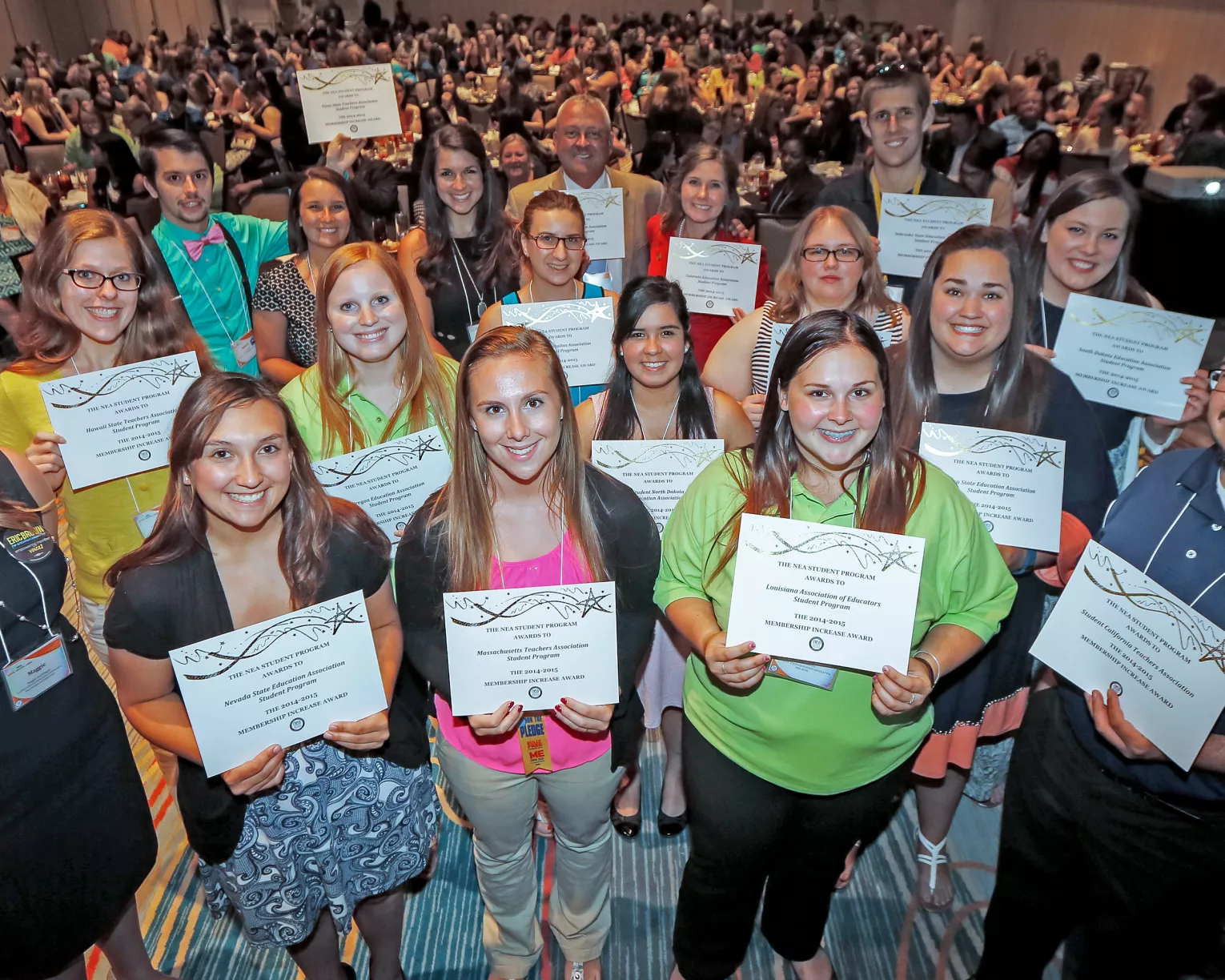I had my first teacher of color when I was in high school. She was never directly my teacher. I just saw her in the hallways. But we formed a bond, in 2016, after the presidential election. When Donald Trump was elected, an overwhelming feeling of sadness and anxiety permeated my high school. None of my educators offered much support. But then I met Gladys Marquez, the only educator of color at my school. She was walking the hallways, telling students to meet after school so we could talk. She handed out safe-space pins too.
I was intrigued. I learned she was an ESL teacher at my school, cared about social and racial justice issues, and had the support from her state union, the Illinois Education Association. I felt like I had finally met an educator who understood me, and I quickly learned there were other like-minded educators across the state who understood students who look like me. Meeting Gladys allowed me to see what was possible for my future.
Hence, why I'm here now: An aspiring educator of color, majoring in history at Saint Xavier University and working toward becoming a social studies teacher.
One of the biggest lessons I’ve learned working with Gladys and other Aspiring Ed members is the power of self-advocacy and our collective voice, and that my values are non-negotiable.
While we may be college students, we are still fellow union members and here to be a part of the fight as well. Over the years, Aspiring Ed members have worked to have more representation within NEA. Today, we have three members on the NEA Board of Directors, collaborating with active professionals and offering a diverse point of view as current college student.
For example, I’m a non-typical student. I don't have the privilege to just go to school. I need to work full time to care for myself and family. The way most education programs are set up is that student-teaching experiences go unpaid. How am I expected to take a whole semester off from supporting myself and family to work for free as a student-teacher? This is a barrier for many aspiring educators, particularly aspiring educators of color. And we need to do more to ensure that student-teachers get compensated for their work.
One of the things I’m most passionate about is grassroots organizing. My strongest stances are protecting Dreamers and advocating for Black Lives Matter. These and other social issues, such as gun reform, are all connected: At their core, it’s about feeling safe. Much of the work involved with these movements starts at the grassroots level—with us, the members—and the solidarity between groups makes our movements stronger.
My main takeaway from being a part of the NEA family is that I’m always learning, and I plan to take that into my classroom. Education and society are ever changing. Therefore, I should be malleable to what my students bring to me and what I give back.
While I will be their teacher, I also want to understand them and make they feel safe, included, and welcomed in whatever way that means to them.



